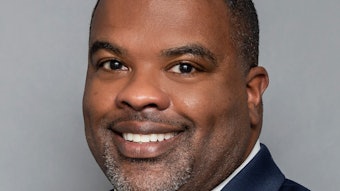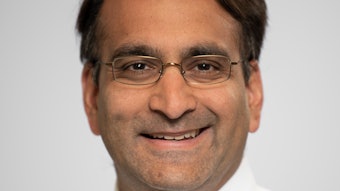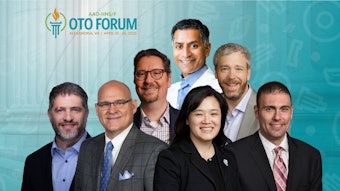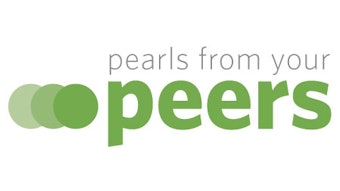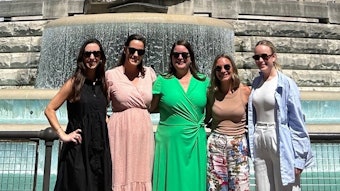Navigating a Right-Handed World as a Left-Handed Surgeon
Individuals and institutions can take steps to support left-handed surgeons, prioritizing their inherent dexterity over conformity to the status quo.
See author disclosures at the end of the article.
Tyler Merrill, MD, on behalf of the Diversity and Inclusion Committee
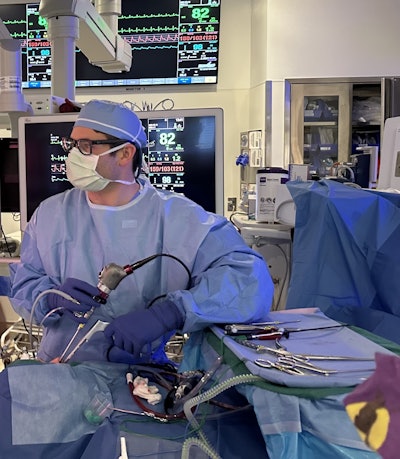 The author, Tyler Merrill, MD, performs surgery with adaptations to accommodate his left-handedness.
The author, Tyler Merrill, MD, performs surgery with adaptations to accommodate his left-handedness.
The Right-Handed Design of Medicine
Most medical instruments and operating room setups cater to right-handed users—a natural outcome given right-handed predominance. From surgical tools to endoscopy towers and teaching models, the standard design favors right-handed users. For left-handed surgeons, this often requires adjusting or improvising to make the setup work. For instance, in rhinology, endoscopy towers and navigation systems are configured to optimize ergonomics for the right-handed surgeon, forcing left-handed surgeons to adapt by either switching hands or reconfiguring the room. This added complexity may be something that left-handed trainees find difficult to adapt, and this may detract from both their interest in the field and development of adequate skills.
Even training environments like cadaver labs and simulation sessions are designed with a right-handed majority in mind. This can leave left-handed trainees feeling frustrated, as they either have to learn in a way that doesn’t align with their natural dexterity or spend time modifying the setup to accommodate their needs.
Right-Handed Bias in Surgical Training

In some cases, bias is explicit. There are personal accounts of left-handed applicants being denied positions in competitive fellowships because of their handedness. I experienced this during a fellowship interview when I was told my left-handedness would be “a big problem” that could not be accommodated. Sadly, I’ve heard similar accounts from other left-handed applicants. Perhaps more astoundingly, there are anecdotes of fellowship matches being rescinded after learning the applicant was left-handed. Furthermore, since left-handedness is not considered a disability under the Americans with Disabilities Act, it is not protected under anti-discrimination law, leaving little legal protection against discrimination.
Adapting and Thriving as a Left-Handed Surgeon
Despite these hurdles, left-handed otolaryngologists have developed strategies to excel in their field. Many cultivate ambidexterity to navigate the right-handed setup more effectively. Others advocate for customizable operating room configurations encouraging institutions to invest in equipment that can work for everyone. During my rhinology fellowship, I made it a practice to set up an additional monitor so surgeons could operate from either side of the bed without compromising ergonomics. I have continued this as standard practice as an attending.
Connecting with other left-handed surgeons has provided valuable guidance and support. Experienced left-handed rhinologists can share their strategies for navigating training, advocating for equipment modifications, and building confidence in the operating room.
Mentorship has also been key. During residency and fellowship training, having mentors who embrace left-handed trainees makes a significant difference. My fellowship mentors were open to the challenge of training their first left-handed rhinologist and their support created an environment where I could thrive. I am forever grateful for their willingness to accommodate my needs, help me gain confidence, and grow as a surgeon.
Creating a More Equitable Environment
The challenges faced by left-handed otolaryngologists highlight the broader need for inclusivity in surgical training. To create a more equitable environment for left-handed surgeons and trainees, institutions can:
- Provide flexible equipment: ensure operating rooms are equipped for both left- and right-handed setup and use.
- Offer inclusive training: design cadaver labs and simulations that accommodate different handedness.
- Raise awareness: educate faculty and peers about the unique challenges left-handed trainees face to reduce implicit bias.
By addressing these issues, the medical community can better support all surgeons, regardless of their handedness. Left-handed surgeons bring a unique perspective to surgery and training. Instead of a barrier, our experience can foster creativity, adaptability, and resilience. By creating an environment that values and supports all surgeons, we can ensure everyone has the opportunity to succeed. In otolaryngology-head and neck surgery, there is no place for discriminatory behaviors, even based on handedness.
This article was written as an original piece by the author. ChatGPT (v.o1-mini) was used to edit for grammar, audience, and tone.







